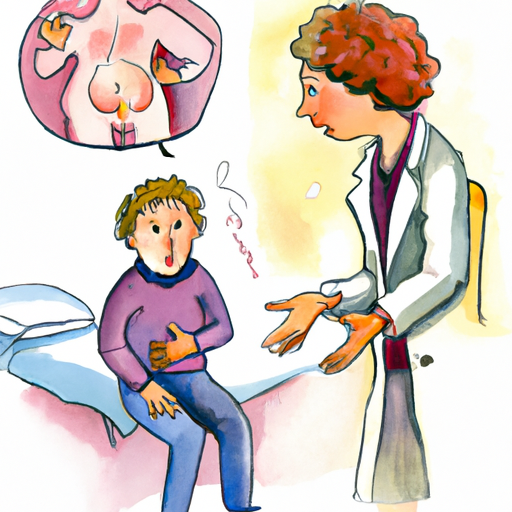Urethritis, although commonly associated with adults, can also affect children. It is a condition that involves inflammation of the urethra, the tube that carries urine from the bladder out of the body. While it may be alarming for parents to discover that their child is experiencing urethritis, understanding the symptoms, causes, and diagnosis can help them navigate through this condition. This article aims to provide a comprehensive overview of urethritis in children, including its symptoms, causes, and diagnosis, as well as effective treatment approaches and prevention strategies. By equipping parents with this knowledge, they can ensure the well-being and comfort of their children, and effectively manage and prevent urethritis in the future.
1. "Understanding Urethritis in Children: Symptoms, Causes, and Diagnosis"
Urethritis is a condition characterized by inflammation of the urethra, the tube that carries urine from the bladder out of the body. While it is more commonly seen in adults, urethritis can also occur in children. It is essential for parents and caregivers to understand the symptoms, causes, and diagnosis of urethritis in children to ensure prompt treatment and prevent complications.
Symptoms of urethritis in children may vary, but commonly include discomfort or pain while urinating, frequent urination, cloudy or bloody urine, and an urgent need to urinate. In some cases, children may also experience abdominal pain or swelling in the genital area. It is important to note that these symptoms can be similar to those of other urinary tract infections, so a proper diagnosis is crucial.
The causes of urethritis in children can be attributed to both infectious and non-infectious factors. Infectious causes include bacterial, viral, or fungal infections that enter the urethra. Common bacterial culprits include Escherichia coli (E. coli) and Streptococcus species. Non-infectious causes may include trauma or irritation to the urethra, such as from the use of harsh soaps or bubble baths, or even from sexual abuse. It is essential to consider these factors during the diagnosis process.
Diagnosing ure
2. "Effective Treatment Approaches for Urethritis in Children"
Urethritis is a condition characterized by inflammation of the urethra, the tube that carries urine from the bladder out of the body. While it is more commonly seen in adults, urethritis can also affect children. Prompt diagnosis and appropriate treatment are essential to prevent complications and ensure a speedy recovery.
When it comes to treating urethritis in children, several approaches have proven to be effective. The choice of treatment depends on the underlying cause, severity of symptoms, and the child’s overall health. Here are some of the most commonly employed treatment approaches:
1. Antibiotics: If urethritis is caused by a bacterial infection, antibiotics are the primary line of treatment. The specific antibiotic prescribed will depend on the type of bacteria identified through a urine culture or other diagnostic tests. It is crucial to complete the full course of antibiotics, even if symptoms subside, to ensure complete eradication of the infection.
2. Antiviral Medications: In cases where urethritis is caused by a viral infection, such as herpes simplex virus, antiviral medications may be prescribed. These medications can help alleviate symptoms and shorten the duration of the infection. It is important to note that viral infections cannot be cured with antibiotics, as they only target bacteria.
3. Pain Management: Urethritis can cause discomfort and pain while urinating. To
3. "Prevention and Management Strategies for Urethritis in Children"
Prevention and Management Strategies for Urethritis in Children
Preventing urethritis in children is essential to ensure their overall well-being and to minimize the risk of complications. Here are some strategies that parents and caregivers can implement to prevent and manage urethritis in children:
1. Hygiene practices: Teaching children proper hygiene practices is crucial in preventing urethritis. Encourage regular handwashing, especially before and after using the toilet, and emphasize the importance of thorough cleaning of the genital area. Parents should also teach their children to wipe from front to back after using the toilet to prevent the spread of bacteria from the anus to the urethra.
2. Urination habits: Encourage children to empty their bladder regularly and avoid holding urine for extended periods. Holding urine for too long can contribute to the growth of bacteria in the urinary tract, increasing the risk of urethritis. Additionally, children should be encouraged to drink an adequate amount of fluids throughout the day to promote regular urination.
3. Avoidance of irritants: Certain substances and products can irritate the urethra, leading to urethritis. Parents should ensure that children avoid exposure to potential irritants such as harsh soaps, bubble baths, and scented hygiene products. Instead, opt for gentle, pH-balanced cleansers and unscented products specifically designed for


